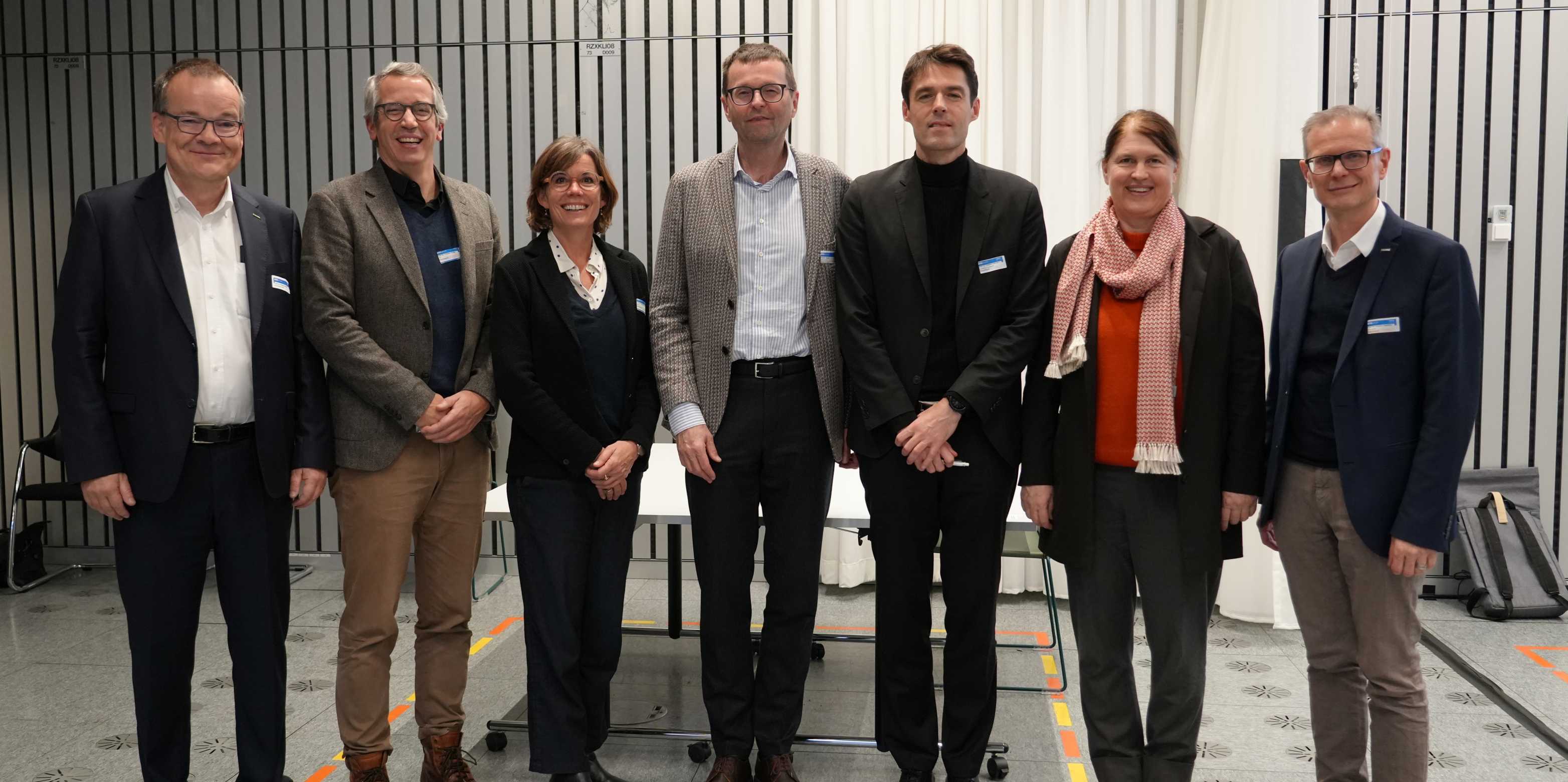Advancing Excellence: The 2024 National Networking Event on Leadership in Swiss Higher Education
On 22 November 2024, the Swiss School of Public Governance (SSPG) brought together over 100 senior leaders from Swiss higher education institutions (HEIs) at ETH Zurich for its National Networking Event, including 30 participants joining online.

The full study report, "General Management Competencies of Senior Leaders at Swiss Higher Education Institutions" (in German) is published here.
The English study report will be published at the beginning of 2025.
A video recording of the event is available via this link.
This event served as a dynamic platform to unveil key findings from SSPG’s recent study "General Management Competencies of Senior Leaders at Swiss Higher Education Institutions". Participants engaged in collaborative discussions to explore strategies for tackling the evolving challenges of leadership across all types of Swiss HEIs.
Key Findings from the Study
The SSPG study stands out in the Swiss higher education context, offering comprehensive insights from 312 senior leaders across 38 institutions. These senior leaders represent a variety of HEI types, including cantonal universities, federal institutes of technology, universities of applied sciences, universities of teacher education, and the research institutes in the ETH domain. The findings highlight significant trends and challenges:
- Leadership Demographics: Senior HEI leaders are predominantly male (68%), Swiss (80%), and in their mid-50s, with an average tenure of 5.5 years in their current role.
- Professional Backgrounds: Nearly equal proportions of leaders come from academic/professorial (48.7%) and professional/mixed (51.3%) career paths. Academic backgrounds dominate leadership positions in academic areas, while non-academic positions often demand professional experience from outside academia.
- Competency Gaps: Leaders identified gaps in basic management skills, change management, and understanding of HEI structures and the Swiss political environment as areas where better preparation would have been valuable.
- Strategic Challenges: Key challenges include resource constraints, digital transformation, AI integration, and sustainability goals. These challenges are expected to grow in relevance in the coming years.
The study also introduced a General Management Competency Model, encompassing six dimensions including the dimensions considered most important – strategic thinking and acting, shaping organizational change, and leadership – which are projected to become even more essential over the next 5–10 years. The presentation of the networking even and the study’s key messages are available here: Download presentation (PDF, 4.9 MB) and key messages Download in English (PDF, 1.1 MB).
Engaging Leadership Perspectives
The event featured a vibrant panel discussion moderated by Rainer Borer, ETH Zurich, bringing together thought senior leaders from across the higher education sector:
- Prof. Dr. Luciana Vaccaro, Rector University of Applied Sciences and Arts of Western Switzerland (HES-SO) and President swissuniversities (by video message)
- Prof. Dr. Günther Dissertori, Rector ETH Zurich
- Prof. Dr. Frédéric Herman, Rector University of Lausanne
- Prof. Dr. Christian Rüegg, Director Paul Scherrer Institute
- Prof. Dr. Barbara Bader, Rector Lucerne University of Applied Sciences and Arts
- Prof. Dr. Esther Kamm , Rector University of Teacher Education Zug
The panelists reflected on the study’s implications, underscoring the need to foster diversity, equip leaders with essential competencies, and rethink governance structures to ensure agility and resilience in addressing growing strategic challenges. The study results and panel discussions highlighted that all HEIs face the same management challenges and therefore the promotion and development of (future) mangers is a topic to be tacked together.
Collaborative Focus Group Discussion
Participants actively engaged in five focus groups, which explored actionable solutions to key challenges:
- Enhancing diversity and inclusivity in leadership teams (i.e., management boards).
- Addressing the complexities of academic self-governance.
- Improving leadership development to facilitate the generational transition.
- Exploring the potential for a national leadership program.
- Promoting institutional agility to navigate resource constraints, digital transformation, and sustainability demands.
These discussions fostered the exchange of ideas and laid the groundwork for tangible improvements in leadership practices across Swiss HEIs.
Acknowledgments
We extend our heartfelt gratitude to all participants, panelists, and moderators for their invaluable contributions to this important dialogue. This event reaffirmed SSPG’s commitment to empowering HEI leaders with the tools and networks to navigate today’s complex and rapidly evolving challenges.
Together, we are shaping a more resilient and innovative future for Swiss higher education!